
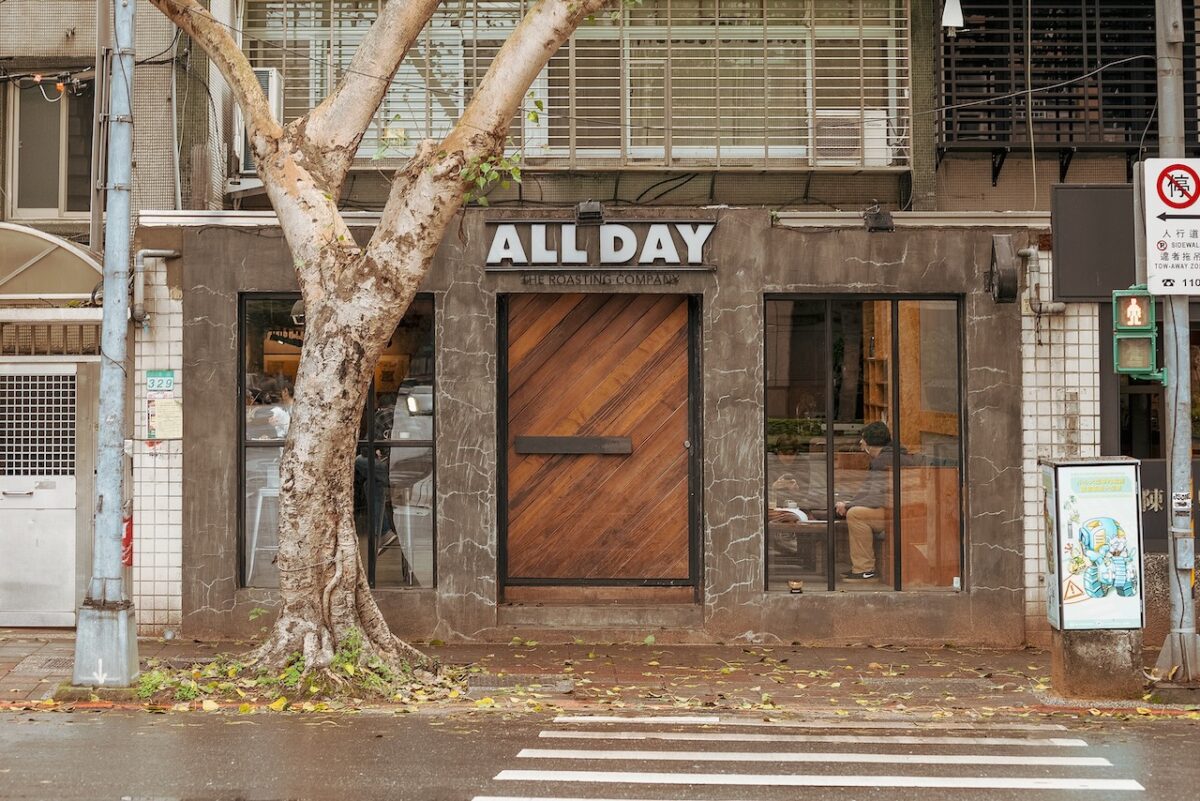
Among the many cafes dotting Minsheng street in the Songshan District, Taipei, is All Day Roasting Company, one of the so-called Big 7 high-profile Taipei cafes featured on a tourist website. Co-founded by CEO Austin Tsai and younger friends from college in 2014, All Day has expanded into roasting, while opening two specialty coffee shops “The Normal.” We have spoken to Austin to get his thoughts on coffee and the future of his company.
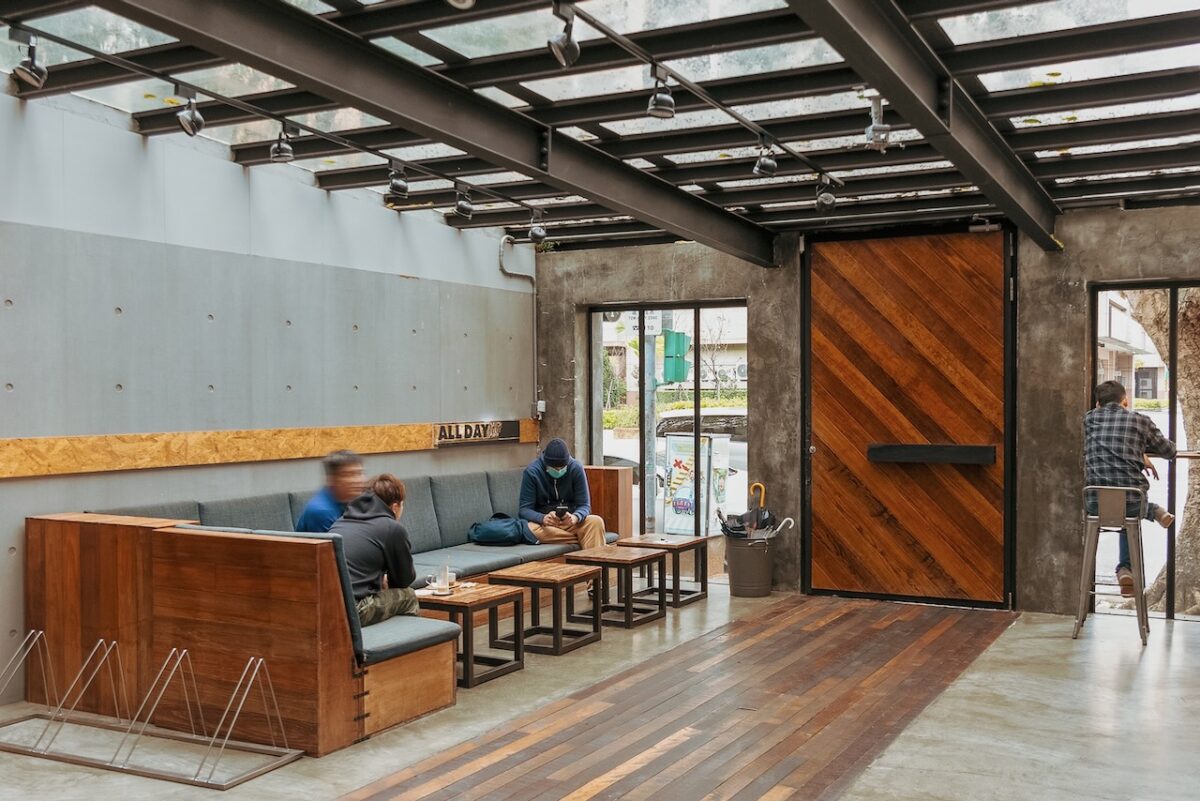
A relaxing time, All Day long
The name “All Day” reflects Austin’s wish to make a place where customers pop in for a leisurely coffee break, any time of the day, in the comfort of its space.
From the industrial-style interior, which was back then a unique look for a Taiwanese cafe, to electrical sockets installed at each for-PC seat, All Day abounds with gimmicks designed to deliver a cozy time. Attracted by the wide-ranging menu of foods, some regular patrons stay at All Day for a full day of meals.
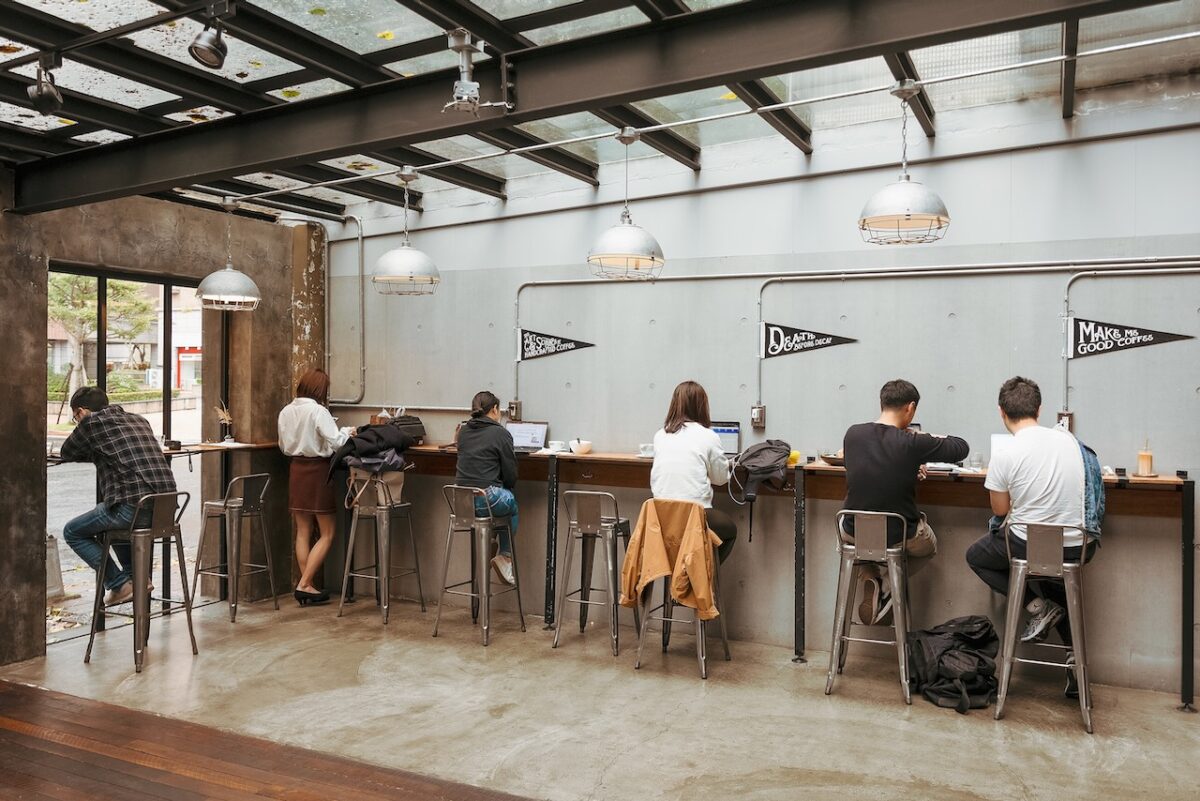
Cafes bustling with customers is an all-too-familiar sight in Taipei on Saturday and Sunday. Quite a few outlets even limit stay to 90 to 120 minutes. All Day was one of them, but no more: At one point, it abolished the time limit.
“It gets pretty crowded on Saturday and Sunday, with a line stretching outside. Put off by the long wait, some people go elsewhere. But we stick to the policy of never asking customers to leave. We did see our profit go down. But for a business to stay up and running for the long haul, it’s more important to earn customers’ trust. In fact, regular customers returned after we lifted the time limit, and online ratings also improved.”
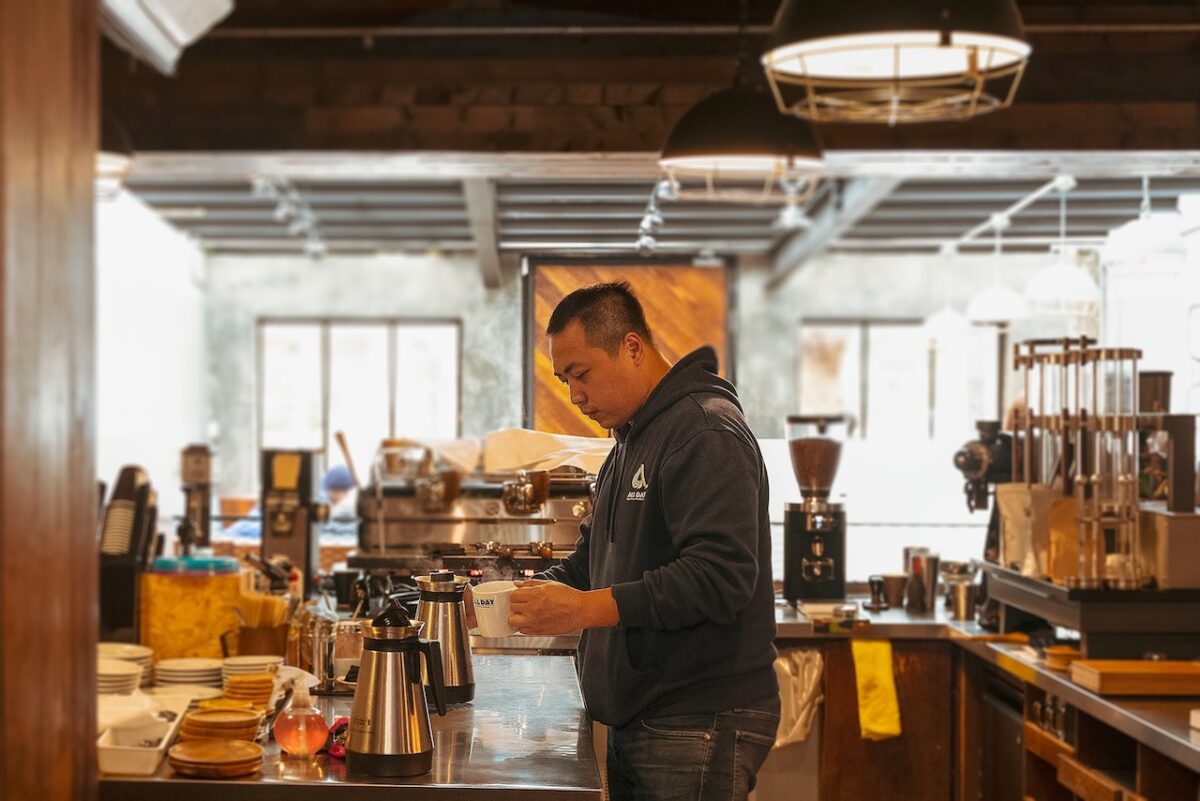
All Day’s industrial style is inspired by Austin’s tour of cafes around the world. Born and raised in Taiwan, Austin moved to the United States after graduating university. Among the many cafes he visited in the country and abroad, ones with an industrial decor captured his heart, be it in Brooklyn, Germany or Norway. This experience planted a desire in him to make his own shop in this style, which eventually culminated as All Day.
Austin’s pilgrimage to cafes continued after he returned to Taiwan. Winding down with a cup of coffee after work became his favorite time of day. One day, a younger college alumni and a friend sounded him out on opening a cafe. Convinced by their enthusiasm, Austin chipped in and co-founded All Day.

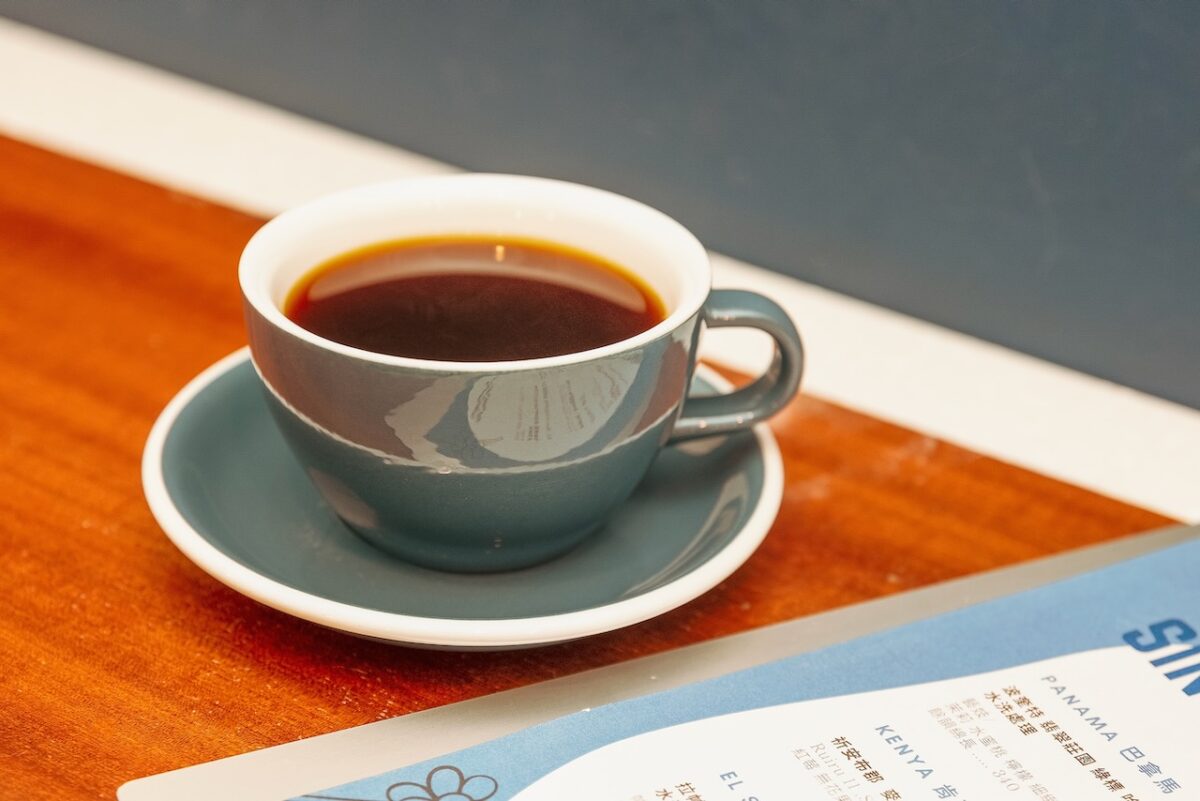
To make specialty coffee everyday indulgence
The three co-founders later expanded their portfolio to open “Normal,” the new line of business focused on specialty coffee. They set up Normal Ren-ai in 2017 and another shop in Dunhua in 2019, branching out into areas home to many affluent households.
“We set out to serve high-quality specialty coffee as an everyday indulgence, not as an exclusive luxury. The name “Normal” represents that purpose of ours. Our coffees start from 150 New Taiwan dollars, much cheaper than the market average of between 200 and 300 New Taiwan dollars.”
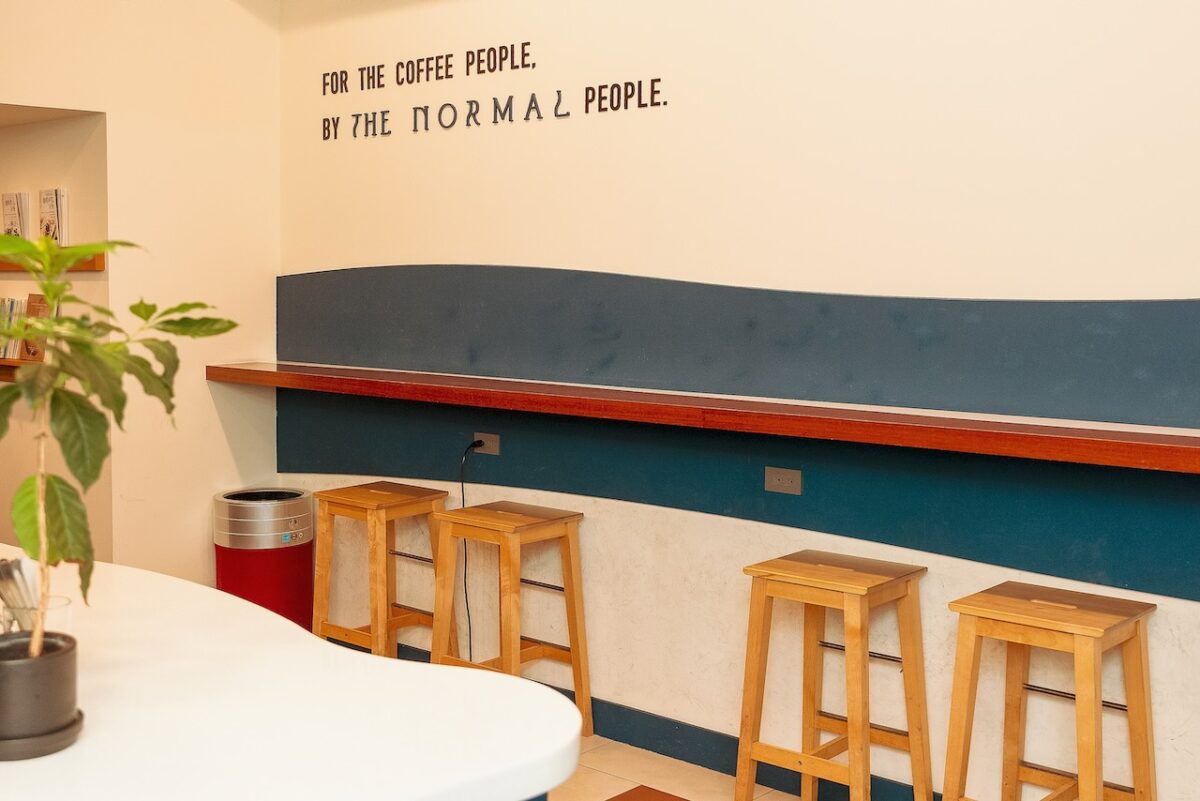
The first Normal outlet is standing-only, a style inspired by Europe’s cafe culture. Inside, the store has nothing but the countertop, placed at just the optimal height for a relaxing coffee time.
While Austin was abroad, he was fascinated by the sight of Italian people enjoying espresso and single-origin coffees on their feet by bar counters. Austin looked to introduce that style to Taiwan. But as if to betray his hopes, Normal met an unexpectedly subdued reaction in its early days.
“In Taiwan, coffee is something people are supposed to drink in their seat. The general feedback was, “If your coffee tastes this good, I’d rather sit down and drink it.” So for the second location, we adopted a style that’s more suited to the needs of Taiwanese people. It’s more of a cafe, nice and spacious, with tables and chairs so that customers can settle down with a cup of coffee.”
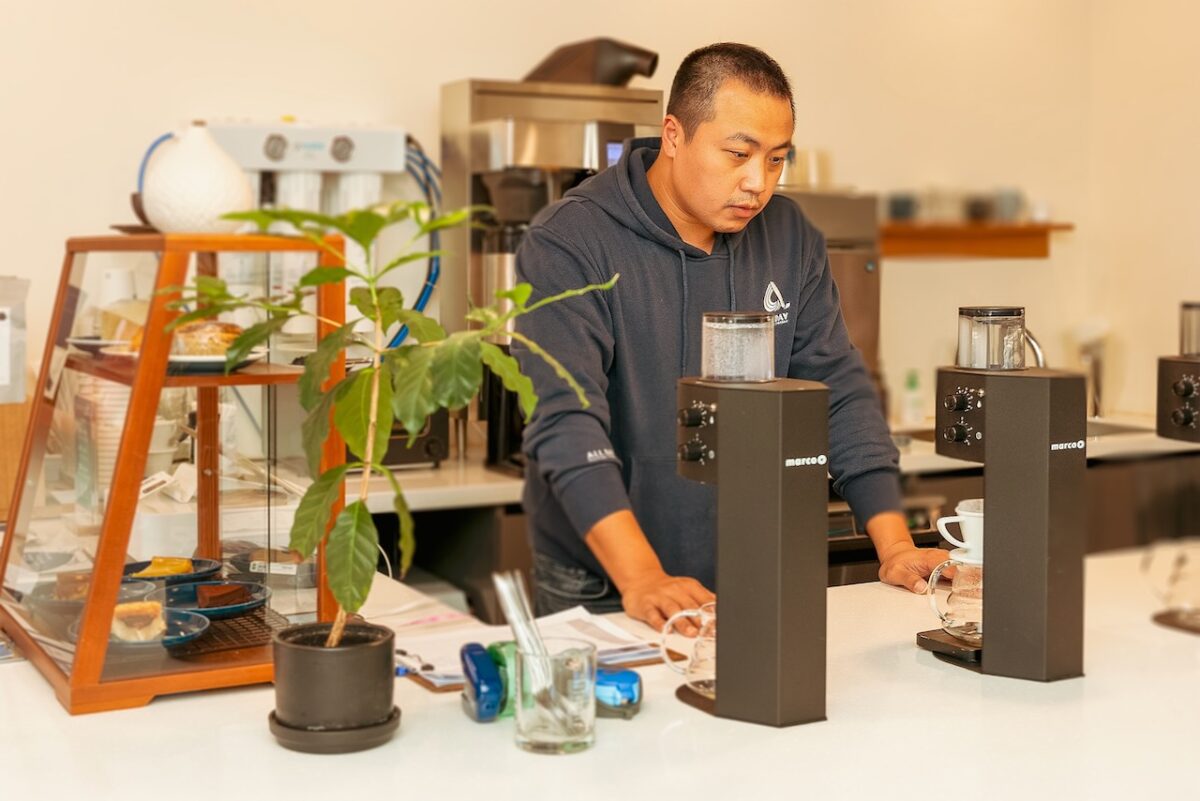
Meanwhile, the first location weathered the initial struggle, and an unexpected turn of events changed the tides in its favor. Thanks to the Covid-19 pandemic, takeout became a new normal, and the standing cafe suddenly began to fit a trend of the times.
The first shop grew in popularity, and has seen consistent sales since. The one big advantage of the standing-only format is its low rent and personnel costs. New locations currently in the works are expected to be standing cafes, too.
“I hope to visit origins and buy green coffee directly from producers. To that end, I want to expand our chain to 10 stores in Taiwan, and possibly abroad, too, if there is a chance. With more shops, we could bulk-buy green coffee for a cheaper rate. We could also more easily try out new green coffee. And eventually, I want to recycle used coffee grounds into daily goods so that we can contribute to the coffee industry and the environment. It’s such an ambitious goal that I know we can’t get there overnight. Nonetheless, that’s where we are hoping to go.”

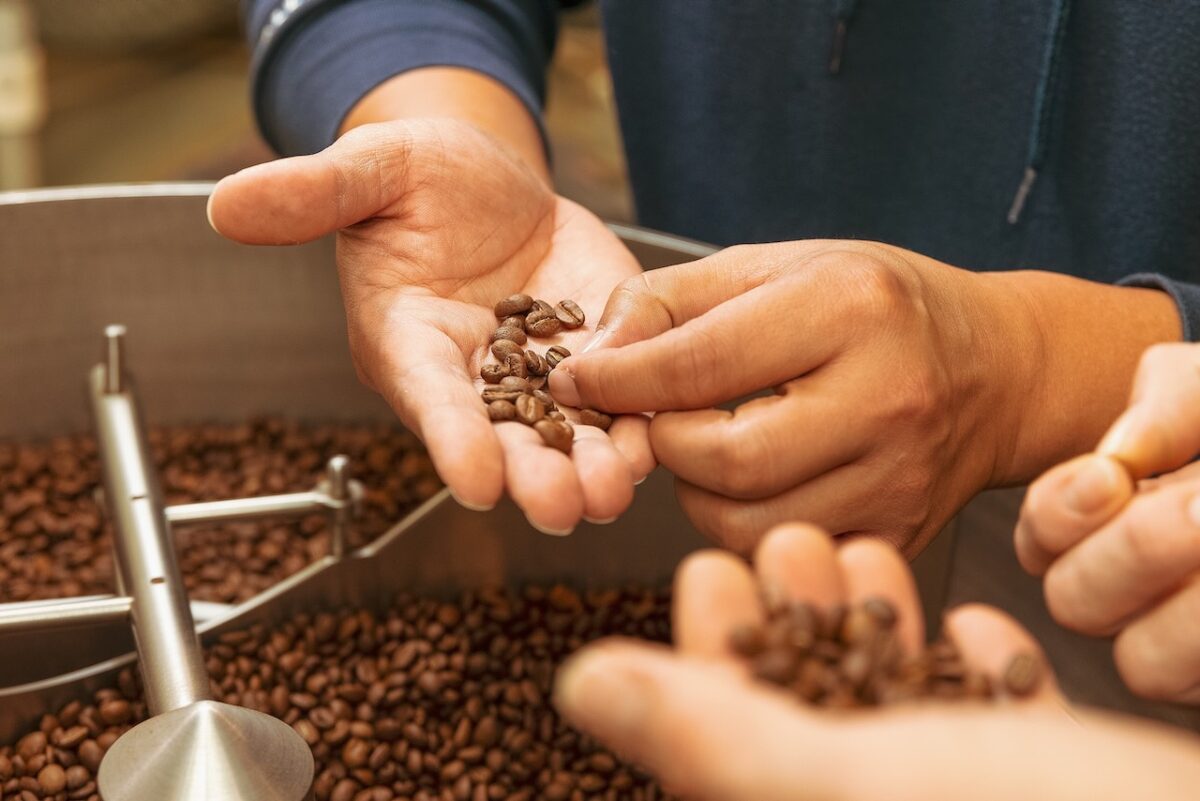
Teamwork makes uniqueness
A turning point for All Day came in 2016, its second year since opening. That year, All Day rebranded itself, adding “Roasting Company” to its name, since the company started roasting coffee on-site.
“We were sourcing roasted coffee from elsewhere. But the quality turned out to be inconsistent, making it hard for us to keep the taste consistent. By roasting coffee on the premises, we could not only solve the problem but also drastically cut the cost that’s needed to make a cup of coffee. We started to pick green coffee more carefully and roast it in a way that brings out its character, which resulted in our own flavors.”
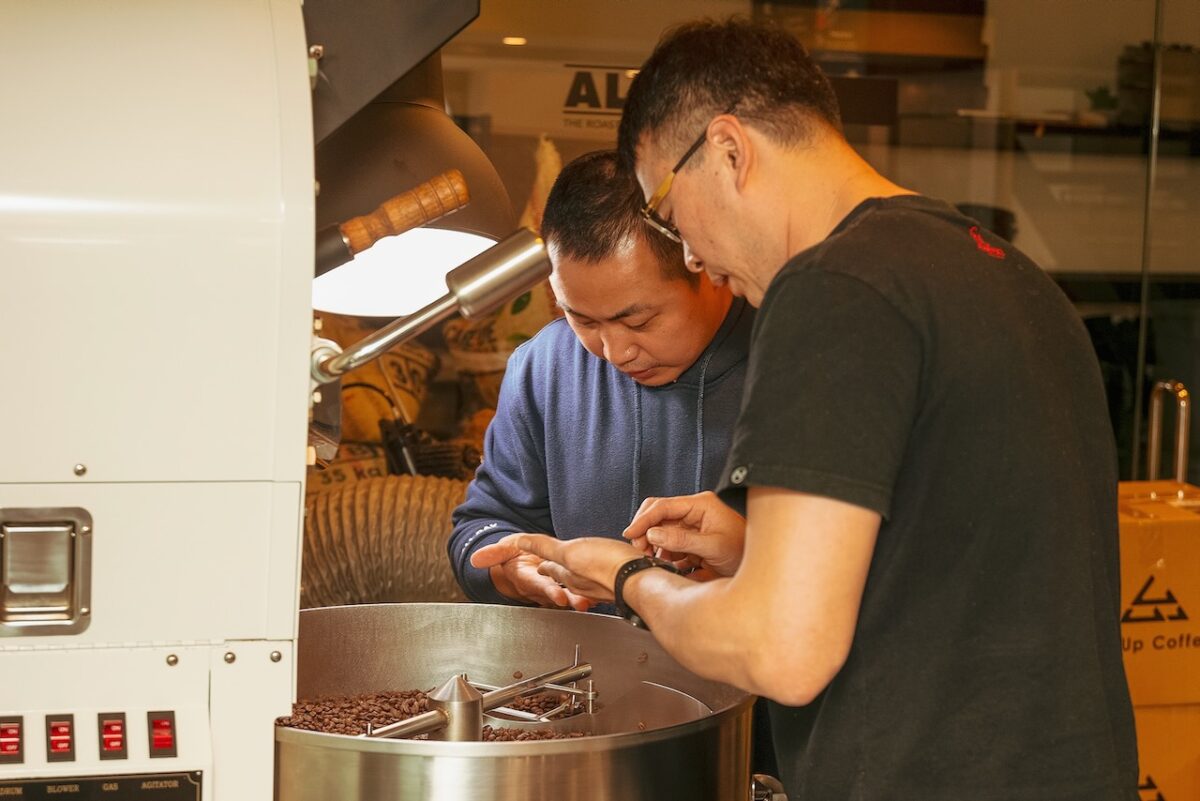
All Day and Normal have different atmospheres and different concepts. Each has established its own roasting style, providing coffees with distinct characters. All Day offers bright coffee, while Normal tilts toward a more serene taste. “Coffee at All Day tastes All Day, coffee at Normal tastes Normal” is a common refrain among their customers.
The man behind their taste is one of the co-founders, now the head roaster. Before co-founding All Day, he had worked at a cafe for six years, accumulating plenty of brewing experience. Now, he teaches roasting and brewing techniques to All Day’s staff.
In its early days, All Day used a Slayer coffee machine. But one day, he realized he didn’t need such high-grade equipment to brew a delicious cup of coffee if he had good skills. Ever since, he has imbued his staff with that thinking.
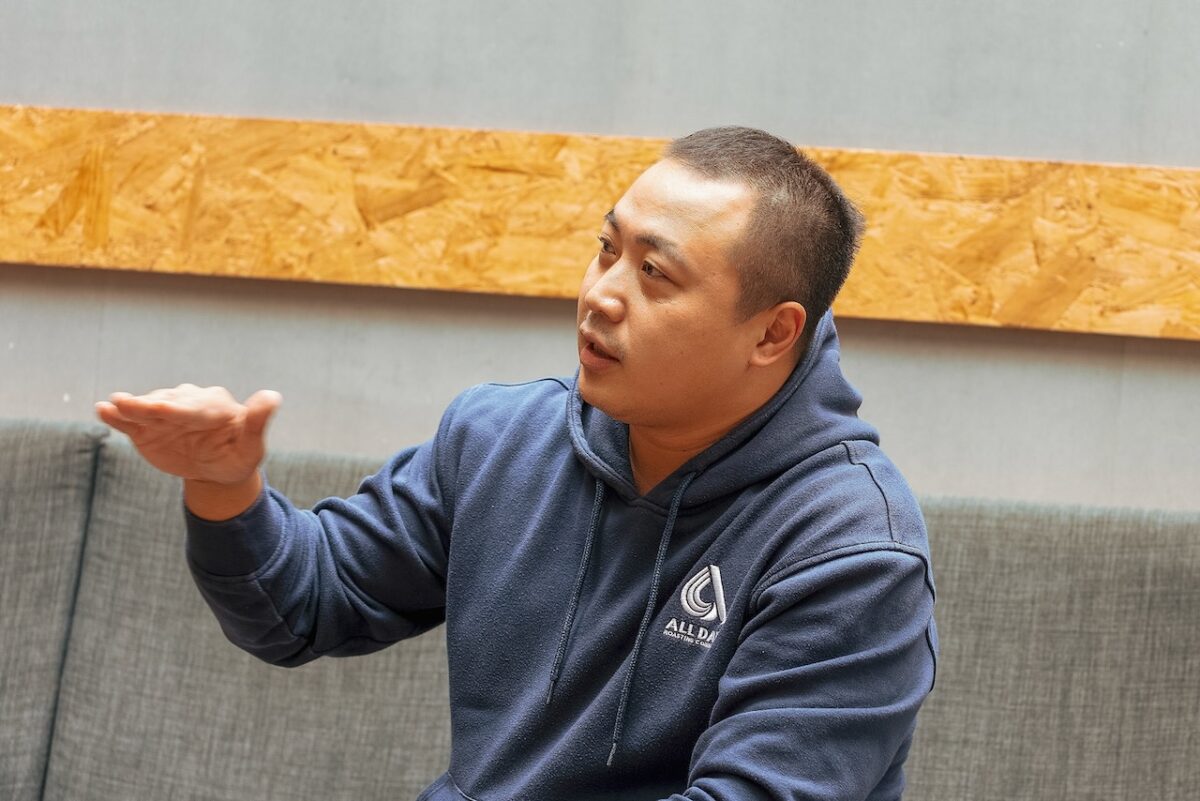
Austin, meanwhile, does show up at his stores but rarely conducts day-to-day operations himself. Quite a few business founders double as the top executive and operations manager. But Austin and his co-founders don’t. They set clear boundaries between roles. To make the business sustainable, Austin handles the finances of all three shops, and the head roaster is in charge of store operations and staff training.
But the line between their roles isn’t absolute.
“We source green coffees that we all agree are delicious. The decision doesn’t come down to a single person. Rather, we weigh costs and discuss together. With some of the more expensive varieties, for instance, we talk about how much we should charge, if there is a market and what we should do if they don’t sell well.”

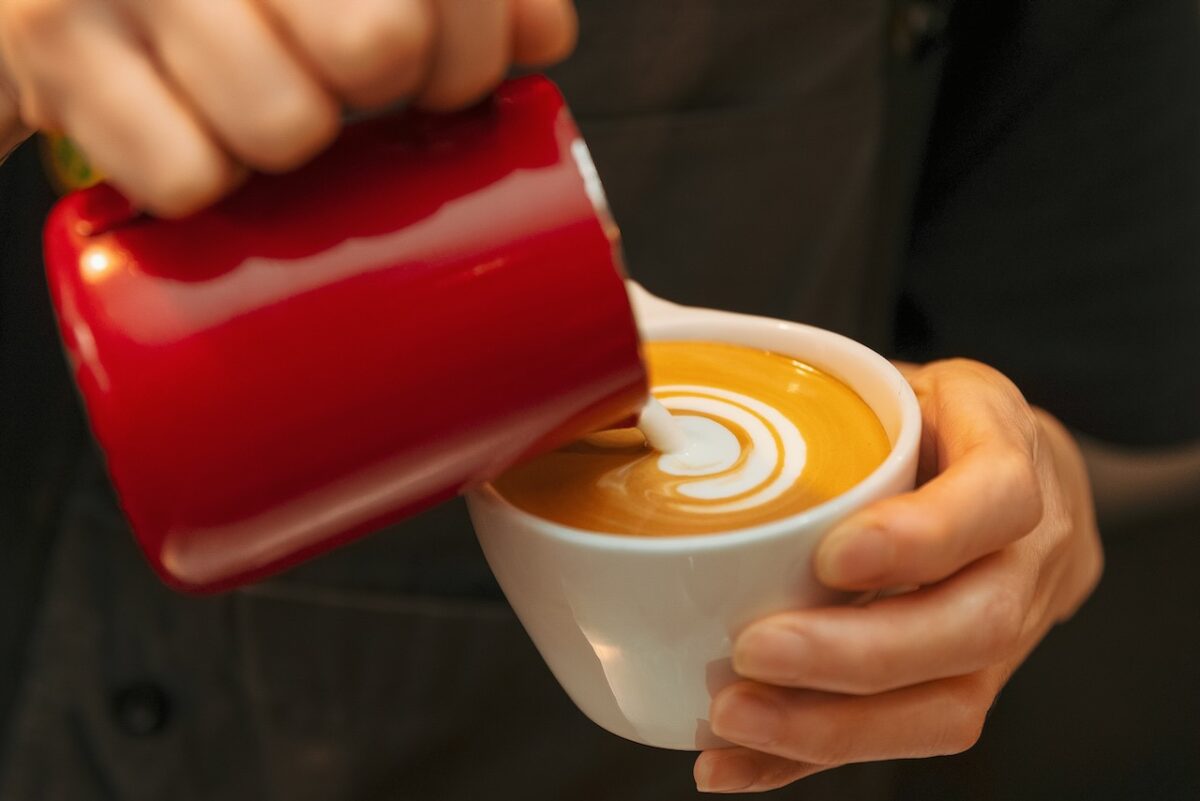
The ability to stick it out
“In recent years, it’s become a trend among young people around 25 to 35 years old to open a cafe. While small shops open one after another, many of them end up closing not so long afterward,” Austin says. What, then, is drawing young people into the market despite the fierce competition?
“Young Taiwanese people, especially those in Taipei, are not well-paid and often stressed out about work and their financial situation. I guess they see more hope in running a cafe than plugging away at a poorly paid job. Each small cafe has its own charms. And if the more people get to enjoy coffee, the more vibrant the whole industry will become. I think what we are seeing in Taiwan is a very good sign.”
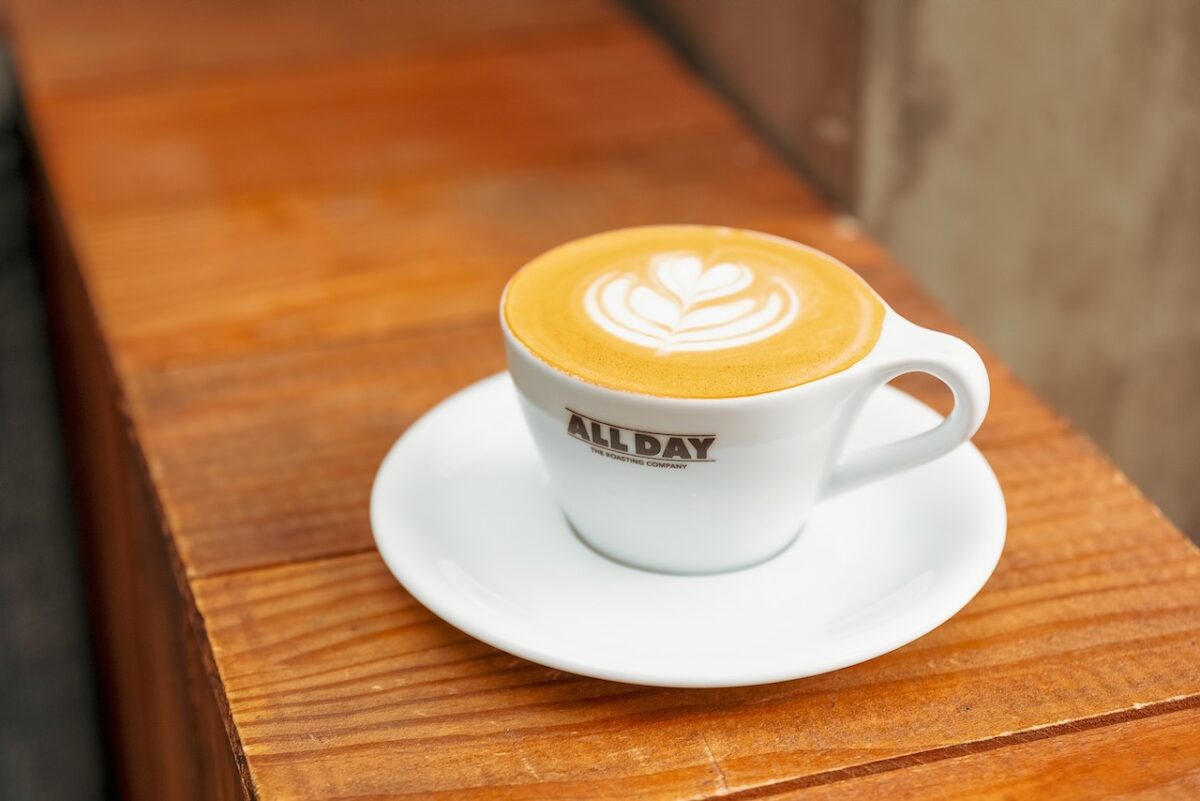
Still, keeping cafes afloat is no easy task. What separates ones that survive and ones that don’t? We put the question to Austin.
“It boils down to the ability to stick it out, I suppose. All Day had a rough patch in its early going. We hardly had any profit for around two years. During that period, we committed to explaining coffees to customers and asking visitors to spread the word about us. That’s partly because we barely had financial wiggle room to spend on advertising. When you don’t know whether your store turns out to be a success, it’s hard to invest in promotion.
Still, we continued to serve delicious coffee. Then, people with a deep understanding of coffee became repeat customers. And gradually, the fog of uncertainty started to dissipate. What matters most when it comes to keeping your store up and running is to think long and hard about what you can do to make customers want to come again.”
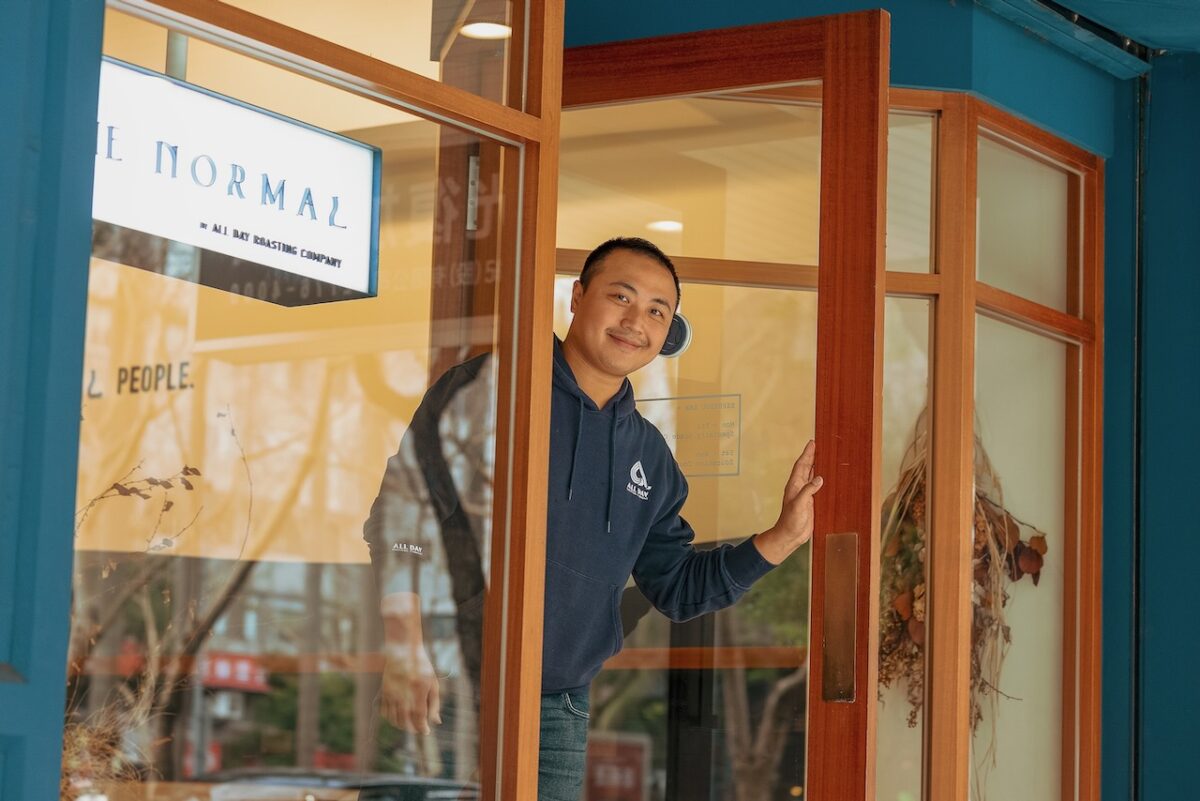
His cafes’ stylish decor is another factor that’s drawing repeat visitors. Despite operating under the same company, the stores have different interiors from one another. That also highlights All Day’s intentions.
“Many people nowadays like to take photos, tag and post them on social media. Our stores are designed to entice them to check out our other locations as well.”
All Day does its best to cook food on the premises to create originality and entertain customers themselves. From store operations to food offerings, Austin and his co-founders put customers above all else in every aspect.
“I remind my staff they don’t have to push customers to order food. We are a coffee shop, not a restaurant,” Austin says. “After all, coffee should take the center stage.”
Originally written in Japanese by Keiko Saga
Edited by Tatsuya Nakamichi
Photos by 王晨熙 hellohenryboy
MY FAVORITE COFFEE
The coffee I drink while on a break from work fills me with more happiness than does the coffee I drink on my day off. The power and energy I get from a coffee break drives me to get back to work.









